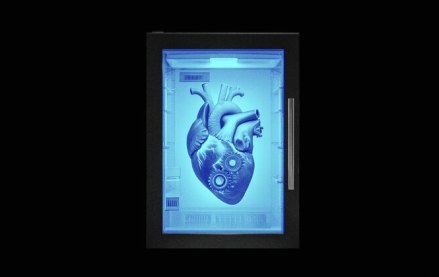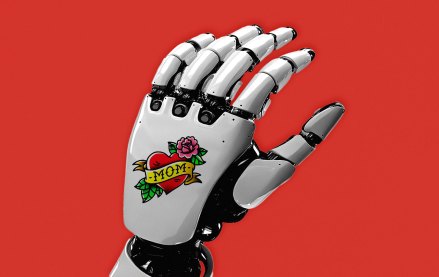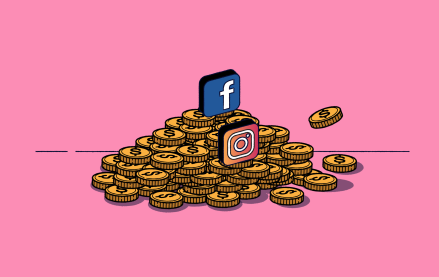Connect with execs from The New York Times, TIME, Dotdash Meredith and many more
Studios embrace ‘creator and meme culture’ as movies like Twisters, Beetlejuice Beetlejuice memeify marketing

As a Digiday+ member, you were able to access this article early through the Digiday+ Story Preview email. See other exclusives or manage your account.This article was provided as an exclusive preview for Digiday+ members, who were able to access it early. Check out the other features included with Digiday+ to help you stay ahead
The memeification of movie marketing is underway.
Finding ways to capitalize off of the cultural conversation, much of which takes place online and within memes, is crucial for movie marketers, according to agency execs, who say that the approach will only be more commonplace, especially with Blockbuster movies.
“In order to not be irrelevant, [movie marketers] have had to bend towards being more consumer-centric,” said Nick Miaritis, chief client officer at VaynerMedia. “That’s what’s happening with the stuff you see this summer. Someone is breaking through within the organization to be like, let’s be more consumer-centric platform relevant and it will lead to more attention for a movie full stop.”
Just look at the rollout of Warner Brothers’ upcoming Beetlejuice Beetlejuice, which will be released in theaters today. The marketing for the Beetlejuice sequel has gone beyond the traditional promotional cycles to include internet culture ahead of the release.
In early August, the Beetlejuice Instagram account posted its own version of Brat Summer content. The accounts also posted a social video featuring actor Michael Keaton in full Beetlejuice garb using the trending audio sound, “Is it me? Am I the drama?” as well as one with cast members Jenna Ortega, Catherine O’Hara and Keaton using the “I’m the owner of this house” audio trend (the latter video has since been deleted).
Last week, meanwhile, a new promotional edition of the hot wings interview show Hot Ones, aptly dubbed Not Ones, featured Keaton interviewing himself in character. The Instagram post for the Not Ones interview garnered an engagement rate of 6.9%, according to data from UTA IQ, the talent agency’s data and research division, which noted that engagement rate is 12 times greater than the industry average for media accounts on platforms.
The Beetlejuice Beetlejuice promotional rollout is just one example of the memeification of movie marketing this summer. Another summer blockbuster entry, Universal Pictures’ Twisters, made waves online by having its cast members Daisy Edgar Jones, Anthony Ramos and Glen Powell doing the viral Apple dance. That post alone scored more than 13 million views and roughly 600,000 engagements, “resulting in an engagement rate 40 times greater than the industry average for celebrities on Instagram,” according to UTA IQ data.
“The official Twisters’ TikTok account also leaned heavily into trends,” wrote Emily Anatole, senior director of cultural insights of UTA IQ, in an email. The account grew to more than 270,000 followers with an engagement rate of 11%, five times greater than the industry average for media brands (the data includes studios as well as publishers) on the platform, Anatole said.
“This social media success translated to box office success, with the movie grossing more than $335 million worldwide,” Anatole said.
Movie studios are just the latest to enter the race to capitalize on internet culture. Brands, from PepsiCo’s Mug Root Beer to Ocean Spray to Liquid Death, have been doing it for years. In part, the strategy seems to be chasing a younger demographic. Roughly three quarters of younger consumers in the U.S. — Gen Z and millennials aged 15 to 43 — have decided to watch a movie following seeing “its online virality or memes about it,” per data from an August poll of over 1,600 consumers across the nation, per UTA IQ data.
“Any brand that is trying to be culturally relevant or trying to be in the moment is going to lean into TikTok trends,” said Jason Xenopoulos, chief creative officer for North America at VML, adding that studios want consumers to feel as if they can’t miss seeing a movie in a theater as it’s a big cultural moment akin to last summer’s Barbenheimer phenomenon. “I do think the studios have been slow to embrace [something that is] fundamental to their survival, which is the ability to make these movies a part of the cultural conversation.”
Marketers pointed to other movie marketing of this trend, including 2022’s horror movie M3GAN, in which a dance scene went viral and became part of the promotional cycle, as well as 2023’s horror/comedy Cocaine Bear. M3GAN became a viral sensation with people using the #M3GAN hashtag to recreate the dance on TikTok, accumulating 3.7 billion views with the movie making $180 million globally, per UTA IQ data. Cocaine Bear, meanwhile, used the character of the bear to reply to tweets on X (formerly Twitter) and become a meme of sorts to generate buzz for the film which ultimately scored $88 million at the box office across the globe.
Movie marketers are “leveraging creators with the formats that they’re already known and loved for,” said Glenn Ginsburg, president of QYOU Media, a full-service media, marketing, and entertainment company that has worked on marketing campaigns for films like Paramount’s A Quiet Place: Day One as well as Warner Brother’s Wonka. Often the company works to “create a cultural conversation around [a] film and its themes” rather than lean on meme culture but if it does use memes they are more “evergreen” memes, explained Ginsburg.
“Short-form content has become such a key way for young audiences, especially Gen Z, to communicate,” said Ginsburg, adding that traditional marketing for movies included trailers, press junkets, and reviews. “Now it really feels like there is a much more significant embrace of creator culture and meme culture [to reach younger audiences.]”
It’s unclear how the studios’ contracts with talent reflect this shift to participate in memes or social videos beyond traditional press junkets. Often, studios’ marketing departments will try to capture as much content as possible with talent from the film during a press day. Whether that work is paid separately from typical marketing duties is unclear. Marketing execs said it likely varies based on the contracts that talent have with studios. Warner Brothers and Universal Pictures did not respond to requests for comment.
That said, as much as studios recognize the need to promote films with memes online, so, too, do the younger talent featured in those films. “That’s the best formula,” said Anatole, adding that the success of the film can boost the brand of the talent within that film so they’re often more amenable to promotion.
“It just feels more relatable and less interruptive,” said Anatole.
More in Marketing

Generative AI sparks brand safety concerns marketers know all too well
Despite concerns around brand misuse and IP, most marketers are sticking to traditional strategies.

‘Production is a big topic right now’: With AI moving beyond media, Publicis turns toward creative
The holdco is positioning AI as core infrastructure for ad production not just media buys.

Instagram offers a new guide to advertisers to convince them to try out its creator marketplace
The 26-page document aims to make the whole process quick and painless.








